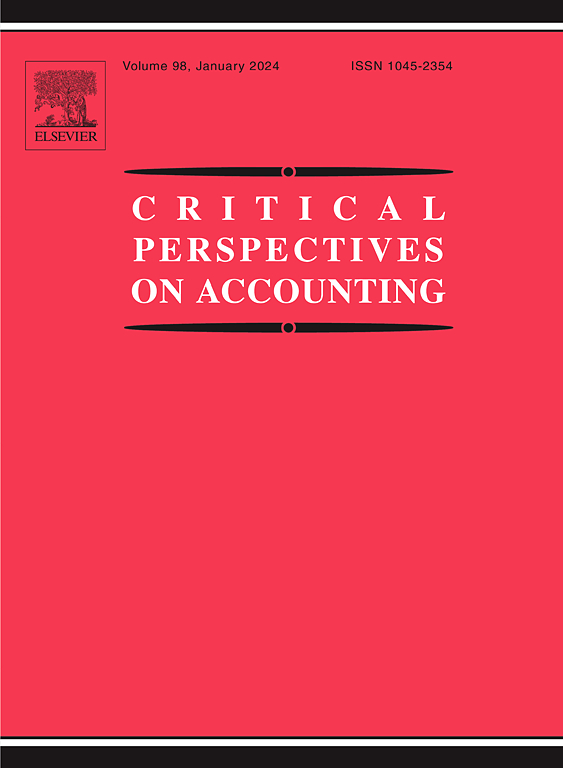Incremental improvement: Evaluating the emancipatory impact of public country-by-country reporting
Abstract
This paper evaluates the impact of the European Capital Reporting Requirements IV (CRD IV) country-by-country reporting (CbCR) requirements as a form of emancipatory accounting, considering whether and how it has delivered the progressive or regressive potential of transparency standards. We discuss how, despite the many significant flaws in the currently available CbCR data and in the current publication standards, the capital requirement standard has been a progressive force in multinational corporation (MNC) tax accounting, in part because of its moderate success in aggravating tension and conflict around the behaviour of MNCs and revenue authorities. The standard has delivered five key benefits: it has brought some evidence to a conversation where historically there has been almost none; it has safely tested some of the arguments against tax transparency and found them wanting; it has demonstrated the appropriate path for future incremental progressive change; it has highlighted issues that need to be resolved before a post-exploitative structure exists; and in some cases it appears to have shifted MNC behaviour, indicating that more and better transparency could support a more emancipatory accounting for transnational corporate taxation.

 求助内容:
求助内容: 应助结果提醒方式:
应助结果提醒方式:


